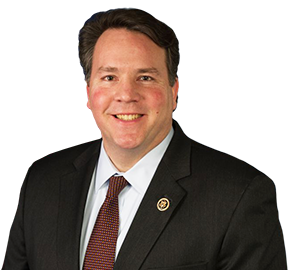How big is too big?
That’s the all-important question shaping the debate over new federal infrastructure spending.
West Virginia’s senators and clean energy advocates disagree on the answer heading into President Joe Biden’s meeting Thursday with Sen. Shelley Moore Capito, R-W.Va., and a group of other Senate Republicans to negotiate an infrastructure agreement.
“[I]f you’re talking to somebody on the ground in West Virginia, one way to sort of [ask the question] is, are the needs and challenges that your community faces small?” said Dan Taylor, West Virginia-based Appalachian field organizer for the BlueGreen Alliance uniting labor unions and environmental organizations. “And I think that you’ll find very few people who think that is the case.”
Taylor was responding to a viewer’s question during a discussion that West Virginian environmental and progressive groups held via Zoom teleconference Tuesday highlighting federal policies designed to ease Appalachia’s economic and energy transition.
Taylor and other clean energy advocates touted the importance of preserving as much of Biden’s $2.2 billion jobs and infrastructure proposal as possible. They highlighted Biden’s proposed $16 billion investment in reclaiming abandoned mines and plugging abandoned oil and gas wells, which the White House has estimated would put hundreds of thousands to work in union jobs, and establishment of a national clean electricity standard aimed at decarbonizing the nation’s power sector by 2035.
The Capito-backed GOP proposal lacks those provisions.
Capito has led the group of six Senate Republicans pushing an initial $568 billion counterproposal to Biden’s sweeping $2.2 trillion plan that would limit investment priorities to traditional travel infrastructure, such as roads and bridges, plus broadband, water and wastewater improvements.
“The first thing we’re going to talk about is narrowing the focus to physical infrastructure,” Capito said looking ahead to the senators’ meeting with Biden Thursday during a Fox News appearance hours before the clean energy advocates’ virtual discussion sponsored by West Virginia Interfaith Power & Light, a state affiliate of the national Interfaith Power & Light organization that mobilizes people of faith to fight climate change.
Interfaith Power & Light federal policy associate Jonathan Lacock-Nisly predicted that, in an evenly divided Senate, swing voter Sen. Joe Manchin, D-W.Va., probably would be “the decider” on an infrastructure plan.
Hours earlier, Manchin told reporters during a teleconference call that he had had a “great” and “very long” meeting with Biden on Monday, during which they discussed getting a bipartisan infrastructure bill done.
But alluding to Republican concerns about the scope of Biden’s proposal, Manchin signaled that what’s under serious consideration is a compromise that would scale back Biden’s proposal, leaving out priorities that could be addressed by other legislation.
“We’re looking for traditional infrastructure, things that fit in traditional infrastructure,” Manchin said, including roads, bridges, water, sewer, internet and electric grid security in that definition. “That was the conversation.”
Breaking up Biden’s infrastructure proposal into separate, more targeted bills, could imperil the proposal’s climate-focused provisions. West Virginia advocates contend that a more sweeping plan is needed to address the state’s economic transition away from coal.
“We can all acknowledge that there are working people in West Virginia who are feeling the pain from that transition, and I think the idea that some sort of fair and equitable way for this transition to happen is just going to organically come about, that’s just not the case,” Taylor said. “We need broad-based policies to deal with this, because the problems are broad.”
Tuesday’s policy advocacy session also highlighted the RECLAIM (Revitalizing the Economy of Coal Communities by Leveraging Local Activities and Investing More) Act, a proposal that would release $1 billion from the remaining, unappropriated balance in the federal fund for abandoned mine lands to states to be spent on reclamation projects in communities affected by abandoned mines and the downturn in coal mining.
“The RECLAIM [Act] is really a no-brainer, because the money is already sitting in [Washington,] D.C.,” West Virginia Citizen Action Group Executive Director Gary Zuckett said.
Manchin has announced a plan to reintroduce the RECLAIM Act in the Senate. Rep. Matt Cartwright, D-Pa., already has introduced the House version of the bill.
Rep. David McKinley, R-W.Va., co-sponsored the House version of the RECLAIM Act in the last session of Congress. But Rep. Carol Miller, R-W.Va., does not support the RECLAIM Act, saying it would divert Abandoned Mine Land program funding from its original purpose. She advocates for modernizing and innovating coal mines, instead.
Rep. Alex Mooney, R-W.Va., is noncommittal on the RECLAIM Act, saying he supports its goals but would have to review the specific details of the legislation if it came up for a vote in the House.

